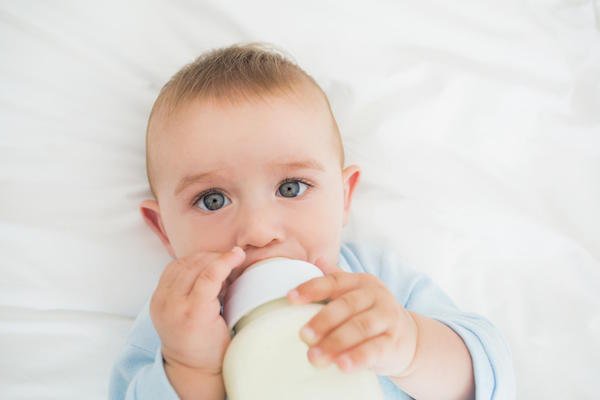 Signs, Symptoms and Treatment For Baby Bottle Rot
Signs, Symptoms and Treatment For Baby Bottle Rot
Baby bottle rot sounds like the name of some hideous creeping disease in a summer blockbuster.
In reality, baby bottle rot is a dental condition that no one wants a child to suffer.
But while the name sounds terrifying, baby bottle rot is a preventable condition, if one that many parents are unaware of.
Because bottle rot is common, dangerous, and relatively unknown, DentArana taking this opportunity to fill parents and potential parents in on what bottle rot is, its symptoms, and the relatively easy ways it can be avoided.
What Is Bottle Rot?
Baby bottle tooth decay is the severe decay of the baby teeth of infants and young children associated with frequent, long-lasting feedings, either at night or across the day. It is caused by frequent and long-term exposure of a child’s teeth to sugary liquids.
Among these liquids are milk (yes, milk contains a lot of sugar), baby formula, sodas, fruit juice, and other sugary drinks. The sugars collect around an infant’s teeth and gums, feeding bacteria that cause plaque. Each time a child consumes a sugary liquid, acid attacks the teeth and gums. Eventually, tooth decay begins.
The condition is also associated with breastfed infants who feed for prolonged periods of time and with children whose pacifiers are dipped in sweetening liquids.
Why Does The Loss Of ‘Temporary’ Teeth Matter?
Here are five reasons primary teeth are important:
Proper chewing and eating. A cavity free mouth often means that it’s easier to enjoy healthy foods without pain or discomfort. It also means that children are more likely to chew their food completely and are less likely to develop bad eating habits.
Providing space for the permanent teeth. Primary teeth hold space for the permanent teeth. They help in guiding primary teeth into the correct position and if they are absent the result may be misaligned, crowded, or non-erupting teeth.
Allowing development of jawbones and muscles. Your baby’s face and jaw muscles need exercise to develop. Healthy primary teeth are part of the proper chewing process that builds these muscles.
Appropriate speech development. Missing teeth can harm the ability of a child to form words and enunciate correctly. If children do not develop enunciation skills early in life, they often have difficulty with speech later in life.
Self-esteem. Missing and decayed teeth are unattractive and mark children who suffer from them as different from their peers. On the other hand, a beautiful and natural smile adds to an overall attractive appearance that builds self-esteem and a positive self image.
How To Avoid Bottle Rot
- Clean your baby’s teeth after each bottle or breast-feeding.
- Don’t put sweet liquids in a child’s bottle at bedtime or naptime. In fact, you should never give a baby a bottle in bed.
- Don’t let your child nod off while nursing from either the breast or bottle (particularly at night).
- Don’t use bottles as pacifiers.
- However, sucking is a natural need for babies and also helps develop face and tongue muscles. If your baby wants to continue sucking after eating, give them a pacifier or bottle of plain water.
- Move your baby from the bottle to a cup by the time they are one year old.
For Breast-fed Babies
- Avoid feedings of more than 30 minutes.
- Avoid all-night feedings. And don’t let baby go to sleep while nursing.
- Avoid frequent, on-demand feedings.
Keep Your Child’s Mouth Clean
Even before teeth come in, clean a baby’s mouth at least once a day with a clean gauze pad or soft cloth. When your child’s teeth start erupting, use a small, soft toothbrush to brush the teeth. Make certain to brush surfaces, including the gums.
Symptoms Of Bottle Rot
White spots on a tooth’s surface are the earliest evidence of baby bottle tooth decay. If caught early, fluoride treatment or placing fluoride varnish can be used to remineralise all of the teeth, reversing early decay.
If decay is spotted at later stages, more aggressive treatment may be needed.
Symptoms of more severe decay include:
- Brown or black spots on the teeth
- Bleeding or swollen gums
- Fever, swelling or irritability, which could indicate infection
- Bad breath
Treatment Of Bottle Rot
Treatment of bottle rot is similar to that for adult tooth decay. If dental work is required, your dentist might suggest sedation or even general anesthesia for your child. In very severe cases, teeth may require extraction.
DentArana Dental is your partner in health
DentArana provides Family Dentistry in Arana Hills. Our goal is to make quality dental care affordable, and help you achieve maximum oral and overall health! DentArana can help you with all your dental needs, from clean and scales to bridges and dentures. We offer late and Saturday hours!
Child Dental Benefits Schedule
Bulk Bill for children who are eligible for MEDICARE CHILD DENTAL BENEFIT SCHEDULE
Up to $1000 worth of dental treatments over two years
Learn more about Child Dental Benefits Schedule.
Call (07) 3351 3366 or visit us at Shop 5 Patricks Place, Corner Dawson Parade and Patricks Road in Arana Hills.





